

漢德百科全書 | 汉德百科全书
 Party and government
Party and government





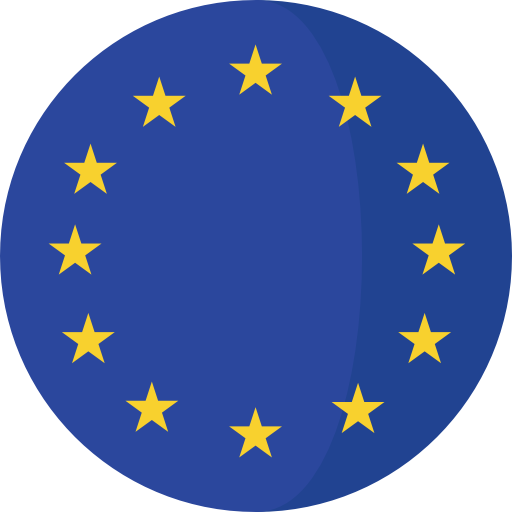 European Union
European Union

 Financial
Financial

 Party and government
Party and government
 *Think Tank
*Think Tank

 Economy and trade
Economy and trade
 Economic and political research
Economic and political research
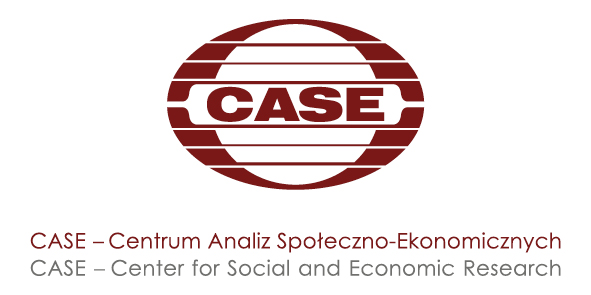

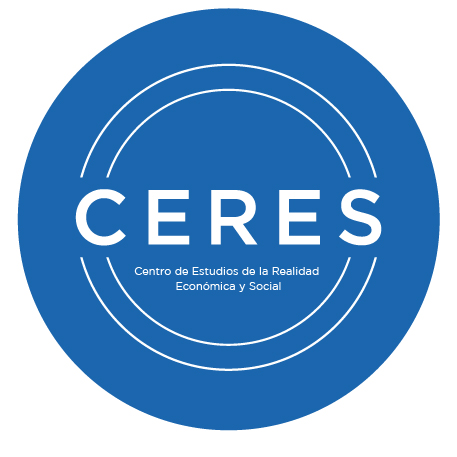

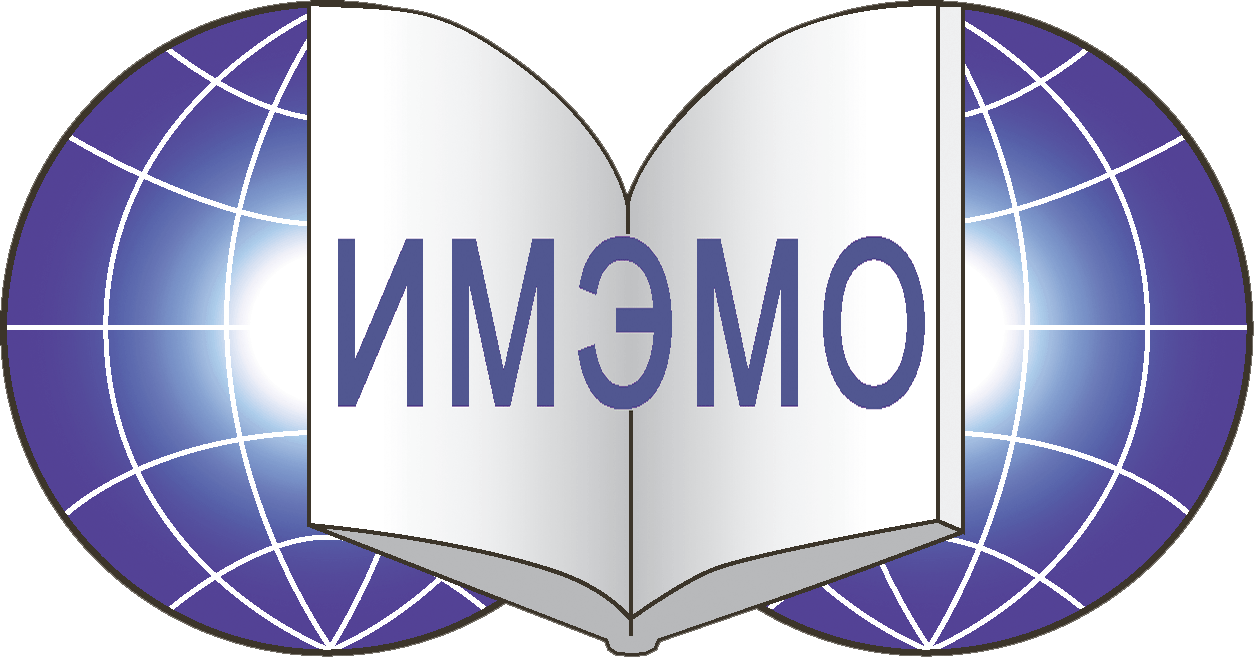

 Abe Shinzō
Abe Shinzō
 Alexis Tsipras
Alexis Tsipras
 Angela Merkel
Angela Merkel
 António Guterres
António Guterres
 Christine Lagarde
Christine Lagarde
 David Cameron
David Cameron
 Dilma Rousseff
Dilma Rousseff
 Dmitri Anatoljewitsch Medwedew
Dmitri Anatoljewitsch Medwedew
 Donald Trump
Donald Trump
 Emmanuel Macron
Emmanuel Macron

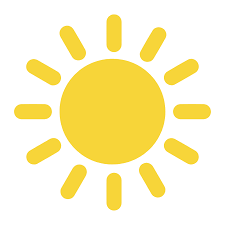 Energy resource
Energy resource
 Felipe Calderón
Felipe Calderón
 Felipe VI.
Felipe VI.

 Financial
Financial

 Hand in Hand
Hand in Hand
 Hassan Rohani
Hassan Rohani
 Jair Bolsonaro
Jair Bolsonaro
 James Gordon Brown
James Gordon Brown
 Jean-Claude Juncker
Jean-Claude Juncker
 Jim Yong Kim
Jim Yong Kim
 Joachim Gauck
Joachim Gauck
 Joe Biden
Joe Biden
 José Luis Rodríguez Zapatero
José Luis Rodríguez Zapatero
 Juan Manuel Santos
Juan Manuel Santos
 Li Keqiang
Li Keqiang
 Liaoning Sheng-LN
Liaoning Sheng-LN
 Mario Monti
Mario Monti
 Mark Rutte
Mark Rutte
 Mauricio Macri
Mauricio Macri
 Naoto Kan
Naoto Kan
 Narendra Modi
Narendra Modi
 Nelson Mandela
Nelson Mandela

 Party and government
Party and government
 *Think Tank
*Think Tank
 Paul Kagame
Paul Kagame
 Petro Poroschenko
Petro Poroschenko
 Recep Tayyip Erdoğan
Recep Tayyip Erdoğan
 Switzerland
Switzerland
 Stephen Joseph Harper
Stephen Joseph Harper
 Tarō Asō
Tarō Asō
 Theresa May
Theresa May
 Tianjin Shi-TJ
Tianjin Shi-TJ
 Ursula von der Leyen
Ursula von der Leyen
 Wen Jiabao
Wen Jiabao

 Important International Organizations
Important International Organizations

 Economy and trade
Economy and trade
 Economic and political research
Economic and political research
 Wladimir Wladimirowitsch Putin
Wladimir Wladimirowitsch Putin
 World Economic Forum,WEF
World Economic Forum,WEF
 Klaus Schwab
Klaus Schwab
 Xi Jingping
Xi Jingping
 Yasuo Fukuda
Yasuo Fukuda

| Year | Dates | Theme |
|---|---|---|
| 1988 | The new state of the world economy | |
| 1989 | Key developments in the 90s: implications for global business | |
| 1990 | Competitive cooperation in a decade of turbulence | |
| 1991 | The new direction for global leadership | |
| 1992 | Global cooperation and megacompetition | |
| 1993 | Rallying all the forces for global recovery | |
| 1994 | Redefining the basic assumptions of the world economy | |
| 1995 | Leadership for challenges beyond growth | |
| 1996 | Sustaining globalization | |
| 1997 | Building the network society | |
| 1998 | Managing volatility and priorities for the 21st century | |
| 1999 | Responsible globality: managing the impact of globalization | |
| 2000 | New beginnings: making a difference | |
| 2001 | 25–30 January | Sustaining growth and bridging the divides: a framework for our global future |
| 2002 | 31 January – 4 February | Leadership in fragile times (held in New York instead of Davos) |
| 2003 | 21–25 January | Building trust |
| 2004 | 21–25 January | Partnering for security and prosperity |
| 2005 | 26–30 January | Taking responsibility for tough choices |
| 2006 | 25–29 January | The creative imperative[61] |
| 2007 | 24–28 January | Shaping the global agenda, the shifting power equation |
| 2008 | 23–27 January | The power of collaborative innovation |
| 2009 | 28 January – 1 February | Shaping the post-crisis world |
| 2010 | 27–30 January | Improve the state of the world: rethink, redesign, rebuild |
| 2011 | 26–30 January | Shared norms for the new reality |
| 2012 | 25–29 January | The great transformation: shaping new models |
| 2013 | 23–27 January | Resilient dynamism[62] |
| 2014 | 22–25 January | The reshaping of the world: consequences for society, politics and business |
| 2015 | 21–24 January | New global context |
| 2016 | 20–23 January | Mastering the fourth industrial revolution |
| 2017 | 17–20 January | Responsive and responsible leadership |
| 2018 | 23–26 January | Creating a shared future in a fractured world |
| 2019 | 22–25 January | Globalization 4.0: shaping a global architecture in the age of the fourth industrial revolution |
| 2020 | 20–24 January | Stakeholders for a cohesive and sustainable world[citation needed] |
| 2021 | 17–20 August | canceled as a result of COVID-19 pandemic |
| 2022 | 22–26 May | History at a Turning Point: Government Policies and Business Strategies[63] |
| 2023 | 16-20 January | Cooperation in a Fragmented World [64] |
Das Weltwirtschaftsforum (World Economic Forum, kurz WEF) ist eine in Cologny im Schweizer Kanton Genf ansässige Stiftung, die in erster Linie für das von ihr veranstaltete Jahrestreffen gleichen Namens bekannt ist, das alljährlich in Davos im Kanton Graubünden stattfindet. Hierbei kommen international führende Wirtschaftsexperten, Politiker, Intellektuelle und Journalisten zusammen, um über aktuelle globale Fragen zu diskutieren. Diese umfassen neben der Wirtschafts- auch die Gesundheits- und Umweltpolitik.
世界经济论坛(英语:World Economic Forum,简称WEF)是一个以基金会形式成立的非营利组织,成立于1971年,总部设在瑞士日内瓦州科洛尼。其以每年冬季在瑞士滑雪胜地达沃斯举办的年会(俗称达沃斯论坛,英语:Davos Forum)闻名于世,历次论坛均聚集全球工商、政治、学术、媒体等领域的领袖人物,讨论世界所面临最紧迫问题。[1]
世界経済フォーラム(せかいけいざいフォーラム、World Economic Forum)は、経済、政治、学究、その他の社会におけるリーダーたちが連携することにより、世界・地域・産業の課題を形成し、世界情勢の改善に取り組む、独立した国際機関。ジュネーヴに本部を置きスイスの非営利財団の形態を有している。1971年にスイスの経済学者クラウス・シュワブにより設立された。
スイスのダボスで開催される年次総会が特によく知られており、約2500名の選ばれた知識人やジャーナリスト、多国籍企業経営者や国際的な政治指導者などのトップリーダーが一堂に会し、健康や環境等を含めた世界が直面する重大な問題について議論する場となっている。また、同機関は、東アジアやラテンアメリカなど6-8の地域会議を開催し、中国及びアラブ首長国連邦においても別途の年次総会を開催している。さらに、会議だけではなく、同機関はさまざまな研究報告書を発表したり、メンバーたちが各業界に関連したイニシアティブに関わるなどの活動を行っている。2011年のダボスにおける年次総会は1月26日-30日に開催された。2012年総会は1月25日-29日に"The Great Transformation: Shaping New Models"というテーマで開催された。2013年総会は1月23日-27日に、創設者クラウス・シュワブによる「地球規模の協力の必要性が今ほど重要な時代はない」との声明を受け、"Resilient Dynamism"というテーマで催された。2014年年次総会は1月22-25日に"The Reshaping of the World: Consequences for Society, Politics and Business"というテーマで催された。2015年年次総会は、"The New Global Context"というテーマで催された。
The World Economic Forum (WEF) is a Swiss nonprofit foundation, based in Cologny, Geneva, Switzerland. Recognised in 2015 by the Swiss authorities as an "other international body" under Switzerland's Host State Act 2007 (HSA, SR 192.12),[1] its mission is cited as "committed to improving the state of the world by engaging business, political, academic, and other leaders of society to shape global, regional, and industry agendas".
The WEF is best known for its annual meeting at the end of January in Davos, a mountain resort in Graubünden, in the eastern Alps region of Switzerland. The meeting brings together some 2,500 top business leaders, international political leaders, economists, celebrities and journalists for up to four days to discuss the most pressing issues facing the world. Often this location alone is used to identify meetings, participation, and participants, with such phrases as "a Davos panel" and "Davos man" being used.[2]
The organization also convenes some six to eight regional meetings each year in locations across Africa, East Asia, and Latin America, and holds two further annual meetings in China, India and the United Arab Emirates. Beside meetings, the foundation produces a series of research reports and engages its members in sector-specific initiatives.[3]
Le forum économique mondial (en anglais : World Economic Forum, abrégé WEF), souvent appelé forum de Davos1,2,3, est une fondation à but non lucratif dont le siège est à Genève. Ce forum est connu pour sa réunion annuelle à Davos, en Suisse, qui réunit des dirigeants d’entreprise, des responsables politiques du monde entier ainsi que des intellectuels et des journalistes, afin de débattre les problèmes les plus urgents de la planète, y compris dans les domaines de la santé et de l’environnement. Le forum organise également la « Réunion annuelle des nouveaux champions » en Chine et plusieurs réunions régionales qui se tiennent tout au long de l’année. Il a été créé en 1971 par Klaus M. Schwab, professeur d’économie en Suisse4. Parallèlement aux réunions, le forum publie un certain nombre de rapports économiques et implique ses membres dans différentes initiatives liées à des secteurs spécifiques5.
Il Forum economico mondiale (nome originale in inglese: World Economic Forum, conosciuto anche come Forum di Davos) è una fondazione senza fini di lucro con sede a Cologny, vicino a Ginevra, in Svizzera, nata nel 1971 per iniziativa dell'economista ed accademico Klaus Schwab.[1]
La fondazione organizza ogni inverno, presso la cittadina sciistica di Davos in Svizzera, un incontro tra esponenti di primo piano della politica e dell'economia internazionale con intellettuali e giornalisti selezionati, per discutere delle questioni più urgenti che il mondo si trova ad affrontare, anche in materia di salute e di ambiente. Oltre a questo celebre incontro annuale, il Forum economico mondiale organizza ogni anno un meeting in Cina e negli Emirati Arabi Uniti e diversi incontri a livello regionale. La Fondazione produce anche una serie di rapporti di ricerca e impegna i suoi membri in specifiche iniziative settoriali.[2]
El Foro Económico Mundial (World Economic Forum, WEF), también llamado Foro de Davos, es una fundación sin fines de lucro con sede en Ginebra, que se reúne anualmente en el Monte de Davos (Suiza), y que sobre todo es conocida por su asamblea anual en Davos, Suiza. Allí se reúnen los principales líderes empresariales, los líderes políticos internacionales, así como periodistas e intelectuales selectos, a efectos de analizar los problemas más apremiantes que afronta el mundo, y entre ellos, la salud y el medio ambiente desde 1991.
El Foro también organiza la “Asamblea Anual de Nuevos Campeones” en China y una serie de asambleas regionales durante el año. En 2008, dichas asambleas regionales incluyeron reuniones en Europa y Asia Central, Asia Oriental, la Mesa Redonda de Directores Ejecutivos de Rusia, África, Oriente Medio, así como el Foro Económico Mundial en Latinoamérica.
Durante el 2008, se lanzó la “Cumbre Inaugural sobre la Agenda Global" en Dubái, con la presencia de 700 expertos mundiales de cada sector que trataron 68 cambios globales identificados por el Foro.
El Foro Económico Mundial fue fundado en 1971 por Klaus M. Schwab, profesor de economía en Suiza.1 Además de asambleas, el Foro genera una serie de informes de investigación e involucra a sus miembros en iniciativas específicas de cada sector.2
Всемирный экономический форум (ВЭФ) — швейцарская неправительственная организация, наиболее известная организацией ежегодных встреч в Давосе. На встречи приглашаются ведущие руководители бизнеса, политические лидеры, видные мыслители и журналисты. Предметом обсуждения являются наиболее острые мировые проблемы, включая здравоохранение и охрану окружающей среды.

1、亚洲承认双重国籍的国家和地区:
中国香港(中华人民共和国)、中国澳门(中华人民共和国)、中国台湾(中华民国)、韩国(有条件承认)、菲律宾、越南、印度尼西亚、柬埔寨、孟加拉国、印度,斯里兰卡、巴基斯坦、叙利亚、约旦、巴勒斯坦、黎巴嫩、以色列、格鲁吉亚、亚美尼亚、伊朗、伊拉克、阿富汗、爱沙尼亚、阿塞拜疆、土库曼斯坦、塔吉克斯坦、卡塔尔、泰国、马尔代夫、东帝汶、哈萨克斯坦、吉尔吉斯斯坦、也门、日本(注:22岁前选择)、新加坡,乌兹别克共35个
注:韩国2011年修订的法律规定艺人可以有双国籍。所以韩国艺人可以是双重国籍。
日本拥有双重国籍的公民必须在22岁之前放弃其中的一个。如果你选择日本国籍,那你的别国护照在日本不能用。虽然日本国籍法上规定本人应该为放弃外国国籍而努力。(第16条))
2、欧洲承认双重国籍的国家和地区:
欧盟成员国除一些原来就在不同程度上各自承认双重国籍外,实际上在1997年欧洲理事会制定的《欧洲国籍公约》规定的某些范围内,如公约第五章第14条“法定的多重国籍”之1规定“任何缔约国应允许:
(1)如果儿童因出生而自动获得了多重国籍,则可保留这些国籍。”,是承认双重国籍的。目前的欧盟成员国包括:法国、德国(有限期承认)、意大利、荷兰、比利时、卢森堡、爱尔兰、英国(含北爱尔兰)、丹麦、希腊、西班牙、葡萄牙、芬兰、瑞典、奥地利、爱沙尼亚、拉脱维亚、立陶宛、波兰(默许)、捷克、匈牙利、斯洛伐克、斯洛文尼亚、马耳他、塞浦路斯、罗马尼亚、保加利亚、克罗地亚(默认)共28个国家。
此外还有下述国家:挪威、罗马尼亚、波士尼亚和黑塞哥维那、塞尔维亚、阿尔巴尼亚、乔治亚、摩尔多瓦、瑞士、土耳其、俄罗斯、乌克兰、格鲁吉亚、马其顿、列支敦士登、摩纳哥公国、安道尔、梵蒂冈,共17个国家也是承认或一定程度承认双重国籍的。
奥地利一般不承认双重国籍,但对奥有特殊贡献者,可保留其奥地利国籍;
西班牙与下列国家互认双重国籍
阿根廷,玻利维亚,智利,哥伦比亚,哥斯达黎加,多米尼加共和国,厄瓜多尔,危地马拉,洪都拉斯,尼加拉瓜,巴拉圭,秘鲁和乌拉圭,安道尔,葡萄牙,菲律宾,赤道几内亚。
1. Countries and regions in Asia that recognize dual nationality:
Hong Kong, China (People's Republic of China), Macau, China (People's Republic of China), Taiwan, China (Republic of China), South Korea (conditional recognition), Philippines, Vietnam, Indonesia, Cambodia, Bangladesh, India, Sri Lanka, Pakistan, Syria, Jordan , Palestine, Lebanon, Israel, Georgia, Armenia, Iran, Iraq, Afghanistan, Estonia, Azerbaijan, Turkmenistan, Tajikistan, Qatar, Thailand, Maldives, Timor-Leste, Kazakhstan, Kyrgyzstan, Yemen, Japan (Note: Before the age of 22 Choice), Singapore, Uzbekistan, a total of 35
Note: South Korea's 2011 revised law stipulates that artists can have dual nationalities. So Korean artists can be dual nationals.
Japanese citizens with dual citizenships must renounce one of them by the age of 22. If you choose Japanese nationality, your passport of another country cannot be used in Japan. Although the Japanese Nationality Law stipulates that I should work hard to renounce foreign nationality. (Article 16))
2. Countries and regions in Europe that recognize dual citizenship:
Except for some EU member states that originally recognized dual nationality to varying degrees, in fact, within certain scopes stipulated in the "European Nationality Convention" formulated by the European Council in 1997, such as Article 14 of Chapter V of the Convention "statutory". Multiple Nationality"-1 states that "any Contracting State shall allow:
(1) If the child automatically acquires multiple nationalities by birth, these nationalities may be retained. ”, which recognizes dual nationality. The current EU member states include: France, Germany (limited recognition), Italy, the Netherlands, Belgium, Luxembourg, Ireland, the United Kingdom (including Northern Ireland), Denmark, Greece, Spain, Portugal, Finland , Sweden, Austria, Estonia, Latvia, Lithuania, Poland (default), Czech Republic, Hungary, Slovakia, Slovenia, Malta, Cyprus, Romania, Bulgaria, Croatia (default) a total of 28 countries.
In addition to the following countries: Norway, Romania, Bosnia and Herzegovina, Serbia, Albania, Georgia, Moldova, Switzerland, Turkey, Russia, Ukraine, Georgia, Macedonia, Liechtenstein, Principality of Monaco, Andorra, Vatican, a total of 17 Many countries also recognize or recognize dual citizenship to some extent.
Austria generally does not recognize dual nationality, but those who have made special contributions to Austria can retain their Austrian nationality;
Spain recognizes dual citizenship with the following countries
Argentina, Bolivia, Chile, Colombia, Costa Rica, Dominican Republic, Ecuador, Guatemala, Honduras, Nicaragua, Paraguay, Peru and Uruguay, Andorra, Portugal, Philippines, Equatorial Guinea.

 Financial
Financial

 Financial
Financial
 *Brazil economic data
*Brazil economic data

 Financial
Financial
 *China economic data
*China economic data

 Financial
Financial
 *Germany economic data
*Germany economic data

 Financial
Financial
 *European Union economic data
*European Union economic data

 Financial
Financial
 *France economic data
*France economic data

 Financial
Financial
 *India economic data
*India economic data

 Financial
Financial
 *Indonesia economic data
*Indonesia economic data

 Financial
Financial
 *Italy economic data
*Italy economic data

 Financial
Financial
 *Japan economic data
*Japan economic data

 Financial
Financial
 *Canada economic data
*Canada economic data

 Financial
Financial
 *Russia economic data
*Russia economic data

 Financial
Financial
 *United States economic data
*United States economic data

 Financial
Financial
 *United Kingdom economic data
*United Kingdom economic data
